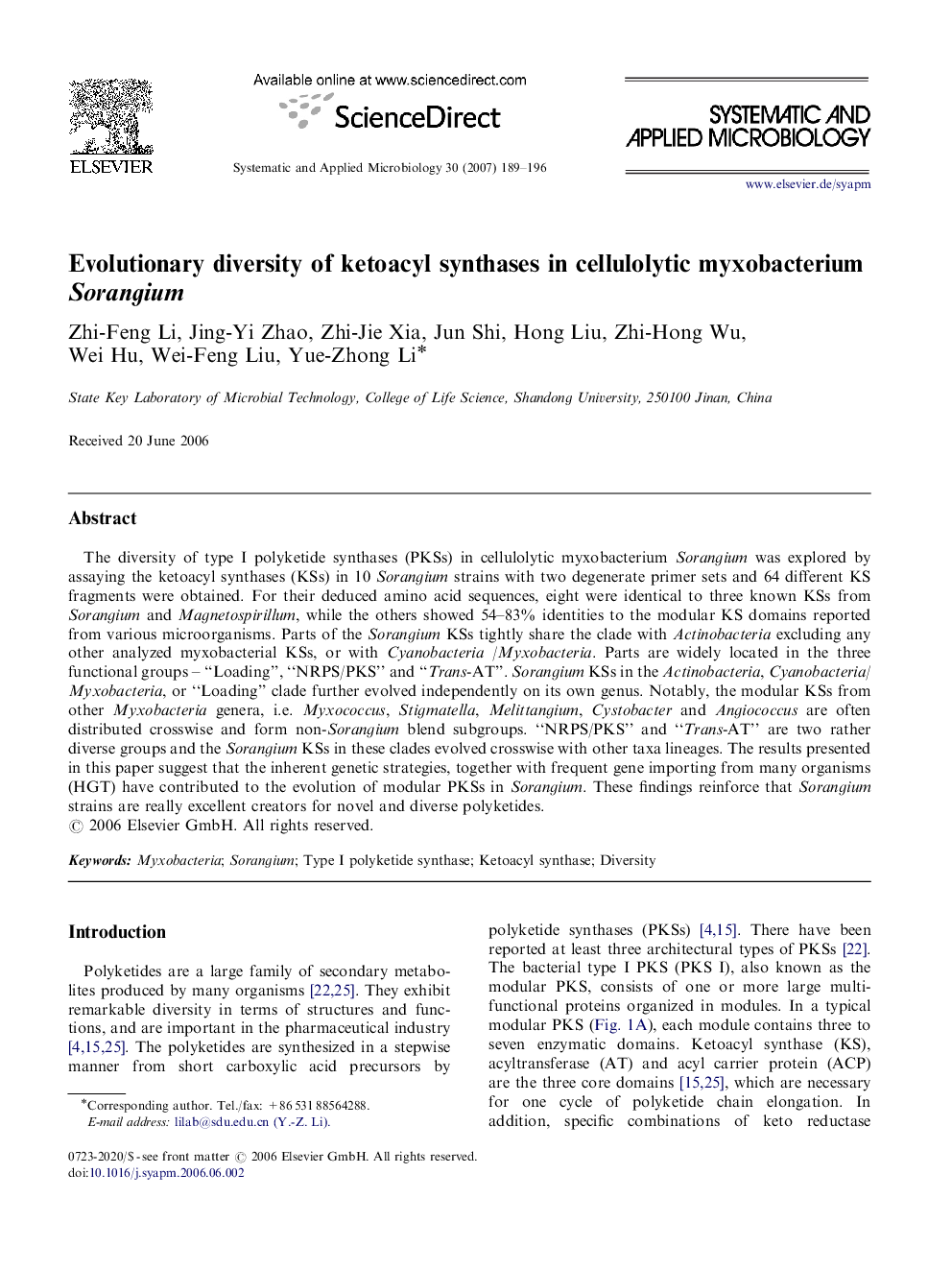| Article ID | Journal | Published Year | Pages | File Type |
|---|---|---|---|---|
| 2063413 | Systematic and Applied Microbiology | 2007 | 8 Pages |
Abstract
The diversity of type I polyketide synthases (PKSs) in cellulolytic myxobacterium Sorangium was explored by assaying the ketoacyl synthases (KSs) in 10 Sorangium strains with two degenerate primer sets and 64 different KS fragments were obtained. For their deduced amino acid sequences, eight were identical to three known KSs from Sorangium and Magnetospirillum, while the others showed 54-83% identities to the modular KS domains reported from various microorganisms. Parts of the Sorangium KSs tightly share the clade with Actinobacteria excluding any other analyzed myxobacterial KSs, or with Cyanobacteria /Myxobacteria. Parts are widely located in the three functional groups - “Loading”, “NRPS/PKS” and “Trans-AT”. Sorangium KSs in the Actinobacteria, Cyanobacteria/Myxobacteria, or “Loading” clade further evolved independently on its own genus. Notably, the modular KSs from other Myxobacteria genera, i.e. Myxococcus, Stigmatella, Melittangium, Cystobacter and Angiococcus are often distributed crosswise and form non-Sorangium blend subgroups. “NRPS/PKS” and “Trans-AT” are two rather diverse groups and the Sorangium KSs in these clades evolved crosswise with other taxa lineages. The results presented in this paper suggest that the inherent genetic strategies, together with frequent gene importing from many organisms (HGT) have contributed to the evolution of modular PKSs in Sorangium. These findings reinforce that Sorangium strains are really excellent creators for novel and diverse polyketides.
Related Topics
Life Sciences
Agricultural and Biological Sciences
Ecology, Evolution, Behavior and Systematics
Authors
Zhi-Feng Li, Jing-Yi Zhao, Zhi-Jie Xia, Jun Shi, Hong Liu, Zhi-Hong Wu, Wei Hu, Wei-Feng Liu, Yue-Zhong Li,
